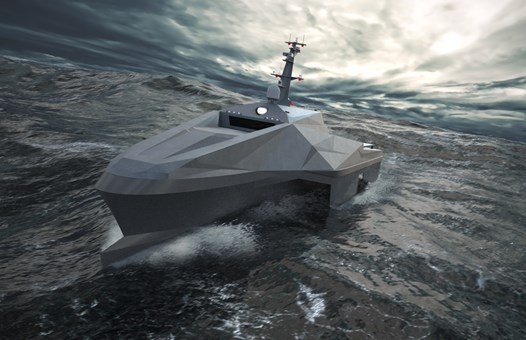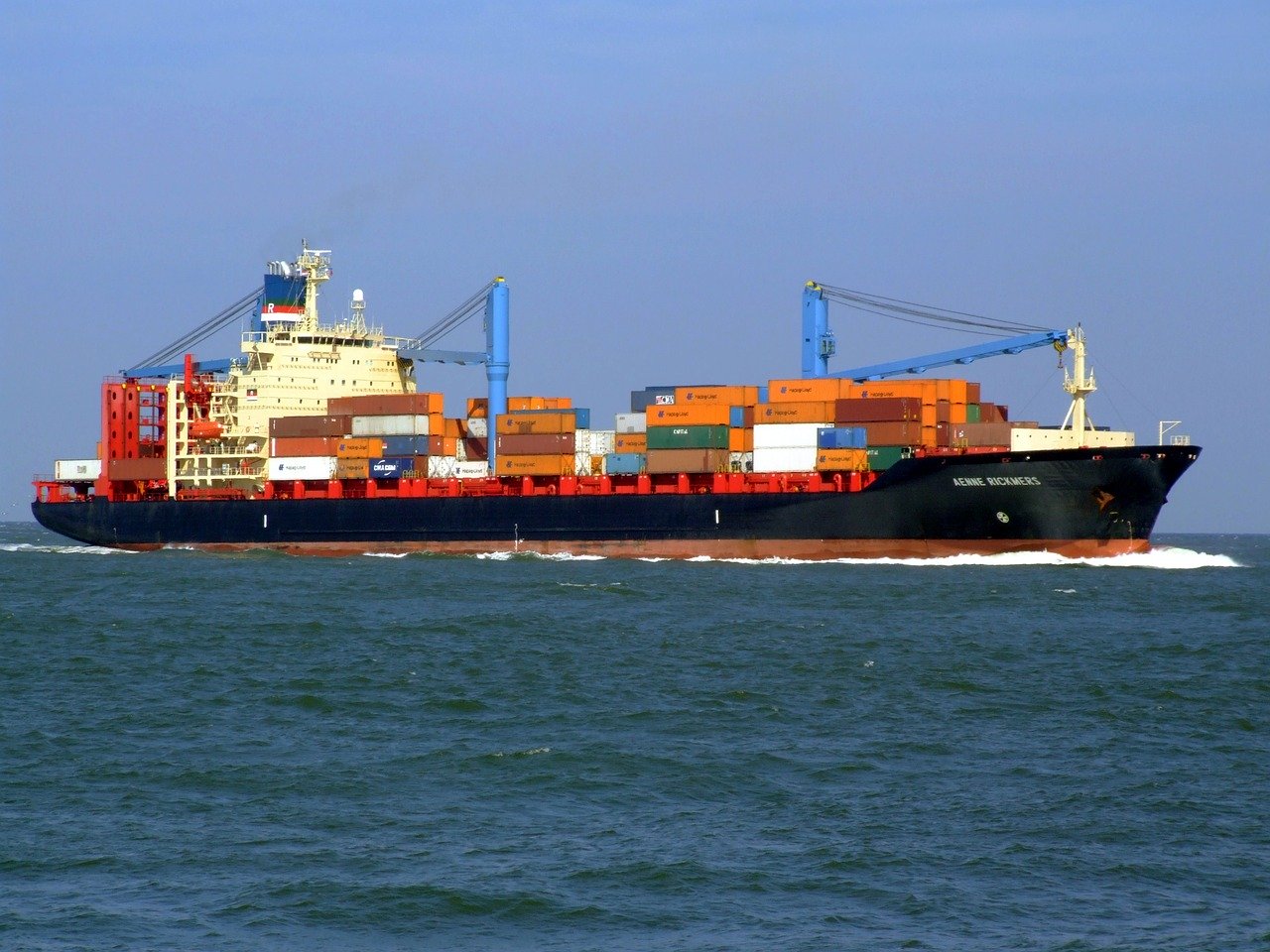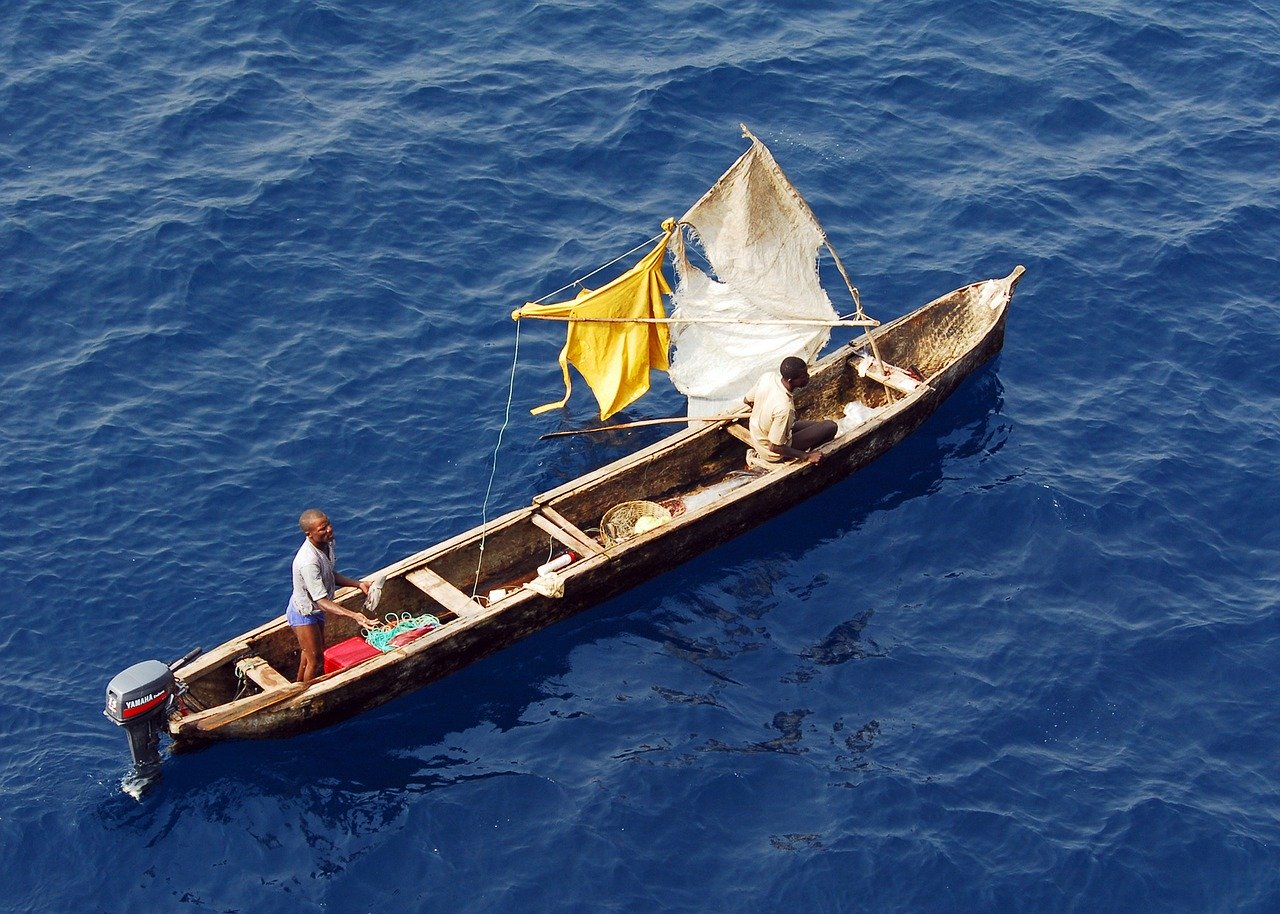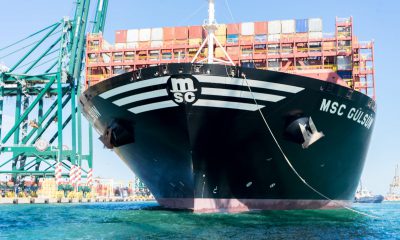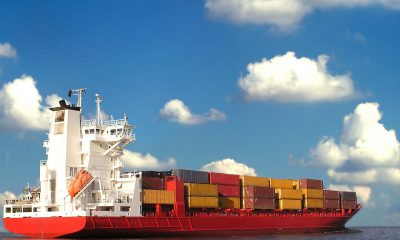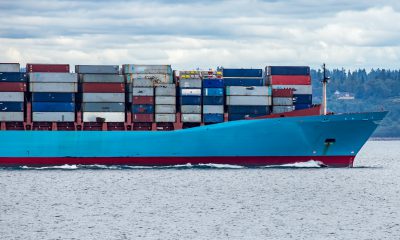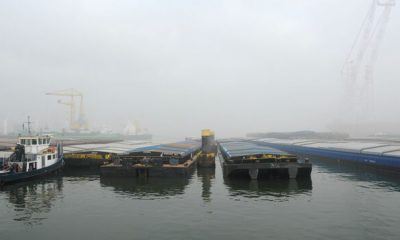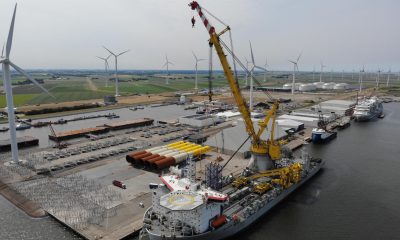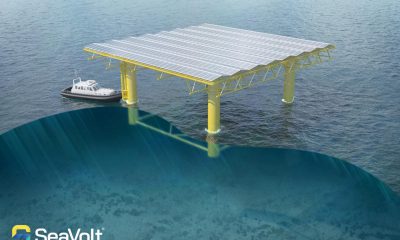Leading the way in multi-hull applications, BMT has released details of its next generation ‘Pentamaran’ platform for autonomous applications. Offering a myriad of applications for defence and commercial innovators, these innovative vessels may be custom configured for military, patrol, intelligence surveillance and reconnaissance (ISR), anti-submarine warfare (ASW) and hydrographic survey work.
The design is the latest from the BMT’s team of expert naval architects and engineers who have been at the forefront of innovative hull design for 34 years. The Pentamaran has been designed to reduce drag as much as possible and tests have proven it offers significant improvements compared to conventional hull forms such as mono-hulls, catamarans and trimaran.
The vessel features a very slender central hull and two smaller hulls or ‘sponsons’ on either side. The sponsons are set one behind the other and when the vessel is operating on flat water, the forward sponsons are not submerged, as they provide roll stability effect in waves only. Compared to a trimaran there is less volume permanently immersed and therefore less resistance through the water.
Martin Bissuel, Business Sector Lead for Specialised Ship Design at BMT comments:
“Our team have carried out extensive work on this. The data gathered through extensive towing tank testing is very compelling. For applications where fuel economy matters, the Pentamaran hull form is more efficient than conventional full forms, which means that using the same engines and the same amount of fuel, it will go further than any other, making it an ideal candidate for autonomous applications. Looking at it from a distance it may resemble a trimaran but that’s where the similarities end.
“The arrangement and careful positioning of the four sponsons makes all the difference. The forward sponsons stay above the water, and only come into action when the vessel rolls, so not only the drag is reduced, but the sea keeping characteristics are improved. Compared to a trimaran hull form, lateral accelerations are lower, reducing g-loadings on the structure as well as the antennae and sensors on deck. The wide deck offers a large working area for multi-role capabilities. It can accommodate payloads or interface with other systems such as unmanned air vehicles.” added Mr Bissuel.
A key consideration, when a vessel is operating autonomously for long periods of time, is the reliability of the propulsion setup which is essential to sustained operational readiness. Our engineers have therefore integrated multiple independent power sources to increase reliability as well as survivability.

